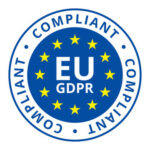What is Search Engine Optimisation?
Search Engine Optimisation (SEO) is the art of making your website and its articles as visible as possible on Google. It is important to follow an SEO campaign to make this successful. It is not just pleasing an algorithm. Like anything that you care about, you need to closely monitor its process and nurture it to make it the best version of itself. Below are a few helpful tips to add to your SEO campaign which will help you attract traffic to your website.
Visitor Count
On analytics for your own website, such as WordPress, you can surveil how many visitors each page gets o a daily basis. Closely watching the troughs and spikes of an article can help with monitoring the rate of success on different topics and features of the website.
If a certain topic isn’t working and you keep writing about it, this will not help with attracting more visitors to the website. With an SEO campaign, you should review which topics gather the most traffic and repurpose these articles to gain more attention.
Keywords
Scattering specific keywords throughout your piece can attract people to not only your article but your website as a whole. Analysing what are the most common searches around your key area of interest is an easy way to get attention from those who otherwise may not have found your website.
To improve SEO, looking at what has worked in the past might be worth revisiting for further traffic. Even variations of key phrases can bring in more visitors as if they’re searching for a certain topic, chances are they will alter their own search for different websites.
It is important to watch these trends during your SEO campaign to monitor how successful your website and content is.
Bounce Rate
The dreaded “Bounced” sessions. A Bounce Rate is when a searcher has left the page quickly and without further browsing. It’s the exact opposite of what you want for your website and the product you are trying to sell. It is important in an SEO campaign to track the bounce rate, as it is very high on certain aspects of the website, it suggests it is time for a change. It’s a great way to find out what works for your brand and what definitely doesn’t.
You can also look at the time spent on each page. If you have a 3000-word essay, but someone’s only spent 20 seconds on the page – chances are they have barely skimmed the article. Looking at this feature means you can easily make changes to existing pieces.
By changing the length of the article, or the headings used may attract their interests further and decrease the bounce rate.
Be My Social is an SEO agency in Yorkshire. It offers a wide range of services including web design, social media management and an in-depth SEO campaign. For more information, fill out our contact form and discover our facilities.










